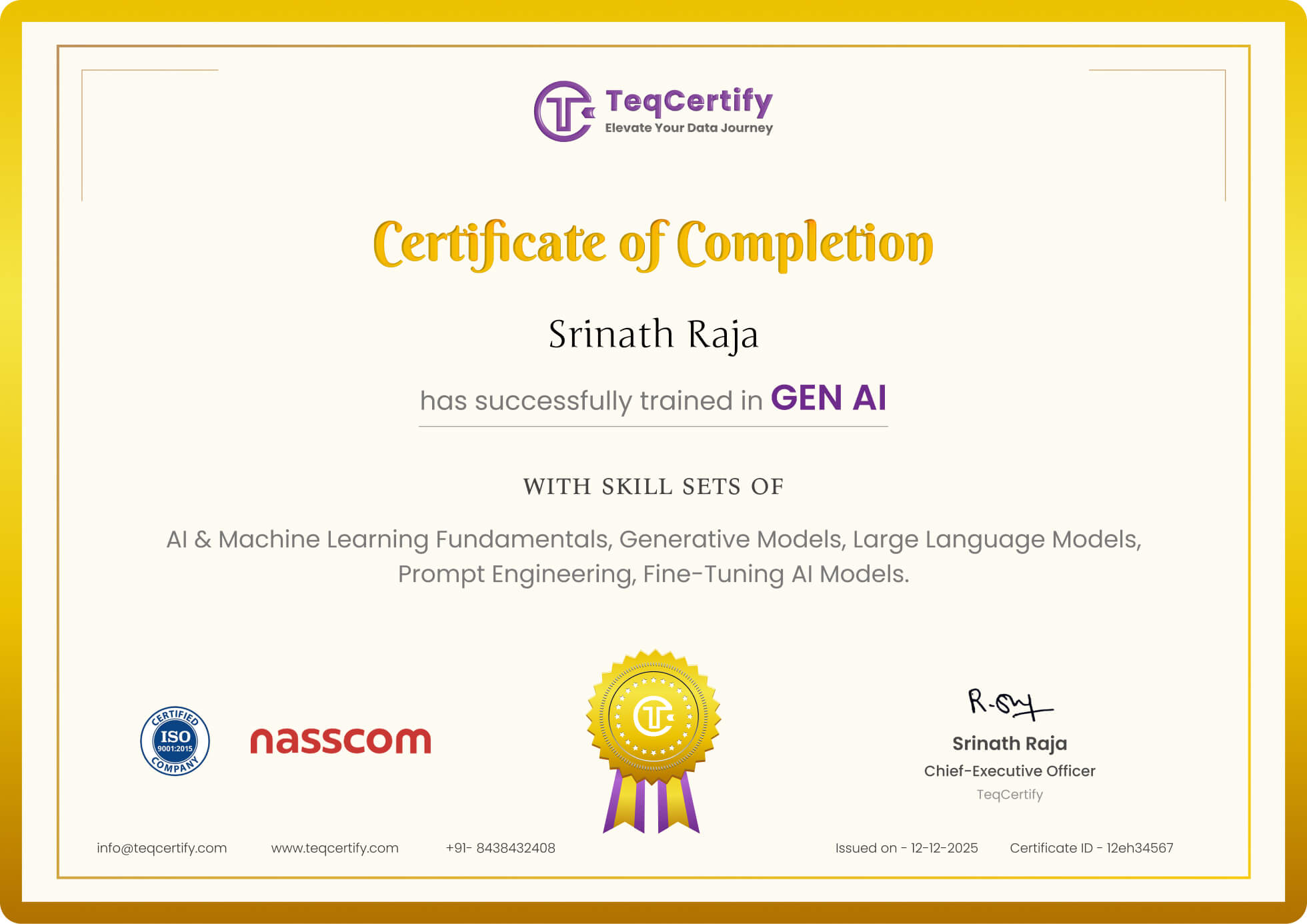Course Overview
Generative AI is revolutionizing the way content is created, from text generation and image creation to predictive analytics. This track provides a hands-on learning experience, guiding you through building and applying AI-powered models for real-world applications.
You’ll explore deep learning, neural networks, and reinforcement learning, gaining the skills to develop cutting-edge AI solutions. Through projects and case studies, you’ll learn to create smart, adaptive AI models, preparing you for the future of AI-driven innovation.
What You’ll Experience
- Master theory and application of Generative AI.
- Build and deploy AI models for tasks.
- Solve industry problems in art and healthcare.
- Solve industry problems in Art, Healthcare etc.
- Gain expertise in TensorFlow, PyTorch, and GPT
- Cutting-Edge Tools: Master industry-relevant tools and techniques.
Syllabus
Introduction to AI and Generative Models
- Basics of Artificial Intelligence and Machine Learning.
- GANs, VAEs, and their applications.
- Understanding neural networks and their structure.
Deep Learning Foundations
- Perceptron, layers, and activation functions.
- Using backpropagation to train models.
- Introduction to popular deep learning libraries.
Generative AI Models
- Training, applications, and use cases of GANs.
- Concept, training, and applications of VAEs.
- Introduction to GPT and BERT.
Advanced Generative AI Techniques
- Applying RL for generative models.
- CycleGANs, DCGANs, and StyleGANs.
- Tailoring models for specific tasks (e.g., text-to-image).
AI Ethics and Safety
- Addressing AI-generated content and its impacts.
- Identifying and reducing bias in AI.
- Best practices for responsible AI development.
Real-World Applications of Gen AI
- GPT-based models for writing and chatbots.
- Text-to-image creation, DeepFakes, and more.
- Use cases in healthcare, finance, and media.
Capstone Project
- Develop and deploy a generative AI model.
- Implement solutions like text generation or image creation
Learning Outcomes
- Master GANs, VAEs, and transformer-based models.
- Expertise in data pipelines.
- Understand neural networks and back propagation.
- Learn reinforcement learning techniques for AI models
- Apply responsible AI practices in deep learning.














